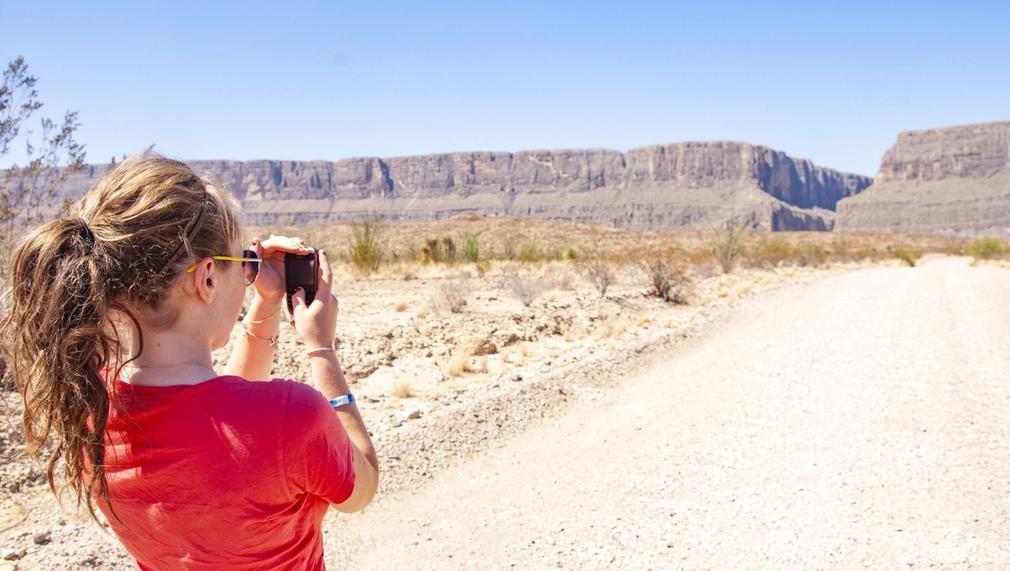chyp's PhotoVoice
chyp’s PhotoVoice for youth living with chronic pain and their parents is a pilot program. Participants take photos to illustrate their experience with persistent pain and coping. The project empowers participants to document their lives using cameras, fostering individual and community change through social connections. Documenting a chronic health condition with photography, with the added benefit of peer support online, can highlight areas of health disparities and provide feelings of connectedness in an otherwise isolating journey.

In which areas of Los Angeles will you be directly working?
Central LA
East LA
San Gabriel Valley
San Fernando Valley
South LA
Westside
South Bay
Antelope Valley
County of Los Angeles
City of Los Angeles
In what stage of innovation is this project?
Pilot project or new program
What is the need you’re responding to?
Research shows that 15% of adolescents have chronic pain, and over half regularly miss school and activities because of the pain. This has serious developmental impacts for young people, including an increased risk of anxiety, depression, suicide, substance abuse, and future pain disability. In fact, 70% of teens with chronic pain will have persistent pain as adults if not properly addressed during adolescence. Health issues extend to family members. Parenting a child with chronic pain can result in missed work, financial stress, poor self-care, and mental health issues. The negative impact of pediatric chronic pain has been established, but there are still many barriers like socioeconomic status, location, insurance, and transportation. chyp utilizes the current tech-focused climate to provide resources online, so families can get the help they need in their own homes. For this project, chyp focuses on photography as a creative outlet, coping skill, and tool for dialogue.
Why is this project important to the work of your organization?
chyp was founded by pediatric chronic pain expert, Lonnie Zeltzer, MD, a Distinguished Research Professor of Pediatrics, Anesthesiology, Psychiatry and Biobehavioral Sciences at the David Geffen School of Medicine at UCLA and Immediate Past-Director of the UCLA Pediatric Pain and Palliative Care Program. She is a co-author on the Institute of Medicine report on Transforming Pain in America and was a member of the national steering committee to provide directions for pain research at the National Institutes of Health (NIH). Georgia Weston, MSW, is the Executive Director of chyp and has spent a decade in the chronic pain world as an author, nonprofit Director, and therapist - and as a chronic pain patient since 14. chyp has professional experience (an international Clinical Advisory) and personal experience (a Youth Advisory Board and Parent/Caregiver Advisory Board). The chyp team uses their combined backgrounds and evidence-based creative healing options to provide online services.
Approximately how many people will be impacted by this proposal?
Direct Impact: 72
Indirect Impact: 720
Please describe the broader impact of your proposal.
Persistent pain hinders daily functioning and leads to isolation. Research shows that social support is a major factor in reducing the negative effects of chronic pain (including mental health problems and substance abuse). Learning creative outlets (e.g. photography) as coping skills can be empowering, enhance self-esteem, and increase feelings of connectedness to a greater community. The portfolio at the end will spread awareness of pediatric chronic pain and creative healing. The participants’ stories will be carried throughout LA and online so peers can feel represented and validated. chyp understands that social support and feelings of connectedness do not have to be a two-way communication, but includes the power of story-telling.
Please explain how you will define and measure success for your project.
With PhotoVoice, chyp envisions a growing community of patients working to transform pain and isolation into empowerment and connection. Photography and social support are immediate coping skills that mitigate the impact of pain. Long-term effects offer feelings of connectedness and proof that at-home healing reduces healthcare barriers. Results will be disseminated through social media, websites, and Dr. Zeltzer’s contacts. Through six group cycles (12 participants/group) there will be two groups aged 13-17, two groups aged 18-25, and two groups for parents. An initial Zoom meeting will discuss expectations, followed by two weeks to take photos. Each cycle will end with a Zoom meeting to share photos and process with peers, led by mental health professionals. To measure success there will be a pre- and post-test. Outcomes will be based on quantitative rating scales and qualitative interviews: 1. To what extent do you feel you expressed your pain and/or coping to others? 2. To what extent do you feel connected to others? and 3. Percent of program completion. Questions 1 and 2 will have a 0-10 scale (0/not at all - 10/extremely), and will be considered successful if the mean change of the age grouping’s pre- and post-score increases by at least two points. At least 65% of participants completing pre- and post-meetings, and submitting two photos, will be considered a success. chyp will host a photo exhibit so LA can see the world of chronic pain.
Which of the CONNECT metrics will your submission impact?
Social and emotional support
Are there any other LA2050 goal categories that your proposal will impact?
LA is the best place to CREATE
Which of LA2050’s resources will be of the most value to you?
Access to the LA2050 community
Communications support
Capacity, including staff
Strategy assistance and implementation
Tech support